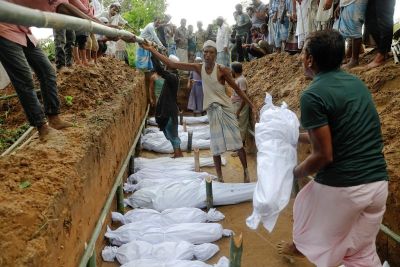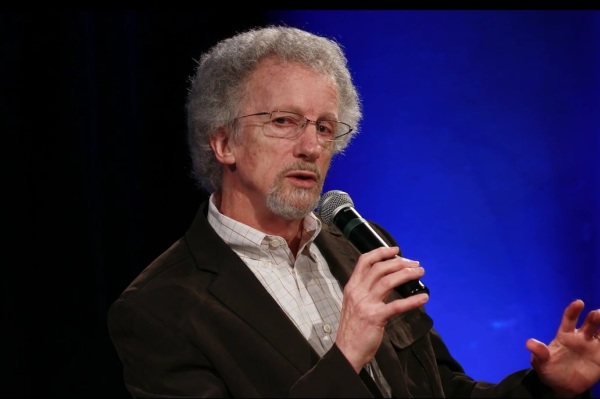Long-Awaited US Report on Burma Lacks Teeth

It has been more than a year since Burmese authorities began a brutal campaign terrorizing, sexually assaulting, and killing mainly Rohingya Muslims, leaving burned villages and corpses in their wake; more than a year since more than 700,000 fled across the border to Bangladesh. Despised for being both ethnically and religiously different, Rohingya Muslims are considered by Burma's military and many of the majority Buddhist population as outsiders illegally residing in the country with the goal of spreading Islam across the land.
What is even more alarming is that this kind of violent campaign had happened before, most recently in October 2016. Then, too, Burma's military launched attacks against Rohingya Muslims and others. Their stated reason? That small groups of Rohingya insurgents, in both instances, attacked and killed Burmese security forces in retribution for increased harassment and discrimination. In so doing, the insurgents handed the government, the military, and some nonstate actors justification—in the name of combatting terrorism—to exterminate and forcibly evict Rohingya Muslims from Burma.
A new report from the State Department revealed that the military's campaign against Rohingya Muslims was planned well in advance, using the insurgent attacks as justification. In fact, the military had intensified its crackdown in the months leading up to the attacks. The report states "the recent violence in northern Rakhine State was extreme, large-scale, widespread, and seemingly geared toward both terrorizing the population and driving out the Rohingya residents."
While the State Department did not label the abuses against Rohingya Muslims as genocide or crimes against humanity despite robust supporting evidence, the United States and the international community nevertheless must swiftly seek justice against the perpetrators under the appropriate international instruments. A recently released UN-commissioned report concluded that Burma's top military leaders should be investigated and prosecuted for genocide, noting circumstances suggesting their "genocidal intent."
We should not be surprised. Burma's military and security forces—and even nonstate actors—have perpetrated these and similar abuses against several religious and ethnic minority communities in Burma for decades. Christians, Muslims, Hindus, and many of the ethnic groups in Burma have long felt the military's wrath and society's disdain.
In the case of Rohingya Muslims, there is no denying that they have been targeted, at least in part, because of their faith. Earlier this year, a delegation from the U.S. Commission on International Religious Freedom (USCIRF), where we serve as Commissioners, spoke with Rohingya refugees now residing in Bangladesh. They described how Burma's government and others often interfered with Ramadan and Eid festivals; locked and burned down madrassas and mosques; desecrated and burned Qur'ans; prevented burials according to Muslim tradition; and targeted imams for detention, torture, and killings. Last November, a USCIRF delegation met with Burma's government, including the Minister of Religious Affairs and Culture, religious leaders, interfaith youth groups, and civil society and to advocate for the religious freedom of Rohingya and other Muslims, Christians, and all religious and ethnic communities.
In USCIRF's 2018 Annual Report, we recommended that the State Department should redesignate Burma as a "country of particular concern," or CPC, under the International Religious Freedom Act (IRFA) for its systematic, ongoing, egregious violations of religious freedom against Rohingya Muslims and others. This designation should have been made by the end of August, and USCIRF urges the State Department to make CPC designations as soon as possible.
The United States must continue to impose targeted sanctions on specific abusers, through IRFA and the Global Magnitsky Human Rights Accountability Act, as the Treasury Department did in August 2018 and December 2017. Such sanctions include visa bans and asset freezes.
It is imperative that the United States make human rights in Burma a priority not just in its bilateral relations, but also as part of its overall foreign policy strategy. The White House National Security Strategy prioritized religious freedom and protecting religious minorities, a policy exemplified by the first-ever Ministerial to Advance Religious Freedom held by the State Department in July 2018. The administration and Congress now must work together to respond strongly and to reinforce U.S. foreign policy priorities in Burma.
Burma's government can no longer deny the abuses perpetrated by the military and nonstate actors. The world can no longer stand by with only words and no action. Our collective conscience can no longer accept these violations of human rights.





















